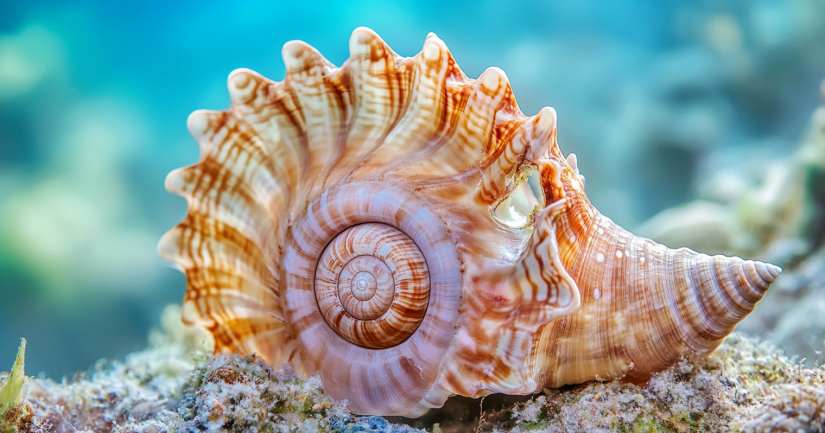
Mollusk Quiz , Test Your Knowledge of These Incredible Invertebrates! From the slow-moving garden snail to the giant squid lurking in the deep, mollusks are one of the most diverse and fascinating groups of animals on Earth. With over 85,000 known species (and possibly many more yet to be discovered!), mollusks can be found in oceans, freshwater lakes, and even on land. Whether they use their hard shells for protection, jet propulsion for speed, or clever camouflage to avoid predators, these invertebrates have developed amazing adaptations for survival. But how much do you really know about them? Take our Mollusk Quiz and find out!
Mollusks belong to the phylum Mollusca, making them one of the largest groups of invertebrates on the planet. They can be divided into three major classes:
Gastropods – This group includes snails, slugs, and limpets. They are known for their spiral shells and muscular “foot” used for movement.
Mollusks are unique in every way, but there’s much more to the ocean! Explore the speed and grace of the Marlin Quiz or float along with the gentle giants in our Manatee Quiz.
What Makes Mollusks So Unique?
- Bivalves – Clams, mussels, oysters, and scallops belong to this group. They have two hinged shells and filter-feed by pumping water through their gills.
- Cephalopods – The most intelligent of mollusks, this group includes octopuses, squids, cuttlefish, and nautiluses. They are known for their camouflage abilities, problem-solving skills, and high-speed movement.
Mind-Blowing Mollusk Facts That Might Surprise You
- Octopuses and Squid Have Blue Blood – Instead of iron-based hemoglobin, cephalopods use copper-based hemocyanin, which turns their blood blue.
- Some Mollusks Can Regrow Their Shells – If damaged, certain mollusks, like snails and bivalves, can repair or rebuild their shells using calcium carbonate.
- The Giant Squid Has Eyes the Size of a Basketball – This deep-sea mollusk has the largest eyes in the animal kingdom, helping it detect predators like sperm whales in the dark depths of the ocean.
- Some Clams Can Live for Over 500 Years – The ocean quahog, a species of clam, can live for centuries, making it one of the longest-living animals on Earth.
- Cuttlefish Can Change Color Instantly – These masters of disguise use specialized skin cells called chromatophores to change colors and patterns in a split second.
- Mollusks Were One of the First Animals on Earth – Some fossil evidence suggests that mollusks have existed for over 500 million years, dating back to the Cambrian period.
- Nautiluses Are Living Fossils – These ancient cephalopods have remained relatively unchanged for 500 million years, making them one of the oldest surviving mollusk species.
- Some Snails Are Deadly – The cone snail produces a venom so powerful that it can paralyze and kill fish instantly. Some species are even dangerous to humans.
- Squid Can Move Using Jet Propulsion – By forcing water out of their siphon, squid can shoot themselves through the water at high speeds, helping them escape predators.
- Pearls Come from Mollusks – Oysters, mussels, and other bivalves produce pearls by coating foreign particles with layers of nacre inside their shells.
The Role of Mollusks in Marine and Terrestrial Ecosystems
Mollusks are crucial to both aquatic and land ecosystems. As filter feeders, scavengers, and predators, they help maintain healthy water quality and biodiversity. Bivalves, such as oysters and mussels, filter impurities from the water, while cephalopods play a role in regulating fish populations.
However, mollusks face threats from overfishing, climate change, pollution, and habitat destruction. Conservation efforts focus on sustainable seafood practices, habitat restoration, and reducing ocean acidification, which affects mollusk shell formation.
Are You Ready to Take the Ultimate Mollusk Quiz?
If you love marine biology, strange animal adaptations, or learning about ocean life, this Mollusk Quiz is for you! Whether you’re fascinated by giant squids, pearl-producing oysters, or the intelligence of octopuses, this quiz will challenge your knowledge and reveal amazing facts about one of the most diverse groups of animals on Earth.
So, are you ready to test your knowledge and explore the world of mollusks? Take the Mollusk Quiz now and see if you’re a true marine life expert! 🌊🐙🐚
Love the ocean? Test your knowledge with the Guess the Sea Animal Quiz, discover your marine match in the What Sea Animal Am I Quiz, or explore more Marine Quizzes for underwater fun!
Mollusk – FAQ
A mollusk is a member of the phylum Mollusca, which includes a diverse group of invertebrate animals. This phylum encompasses creatures such as snails, clams, squids, and octopuses. Mollusks are characterized by their soft bodies, often protected by a hard shell, and they play crucial roles in aquatic and terrestrial ecosystems.
Mollusks are generally classified into eight major classes, with the most notable being Gastropoda (snails and slugs), Bivalvia (clams, oysters, and mussels), and Cephalopoda (squids and octopuses). Each class exhibits unique features and adaptations suited to their environments, such as the ability of cephalopods to change color and texture for camouflage.
Mollusks exhibit a variety of reproductive strategies. Many species reproduce sexually, with separate sexes or hermaphroditic individuals. Fertilization can occur externally or internally, depending on the species. Some mollusks, like certain snails, may also engage in a form of asexual reproduction, creating offspring without mating.
Mollusks play vital roles in their ecosystems. They contribute to nutrient cycling, serve as a food source for numerous animals, and help maintain the health of marine environments. For instance, bivalves filter water, improving clarity and quality, while gastropods help decompose organic matter.
Yes, many mollusk species face threats from environmental changes, including habitat loss, pollution, and climate change. Overfishing and ocean acidification are particularly concerning for marine mollusks, as these factors can disrupt their life cycles and reduce populations. Conservation efforts are essential to protect these important organisms.
